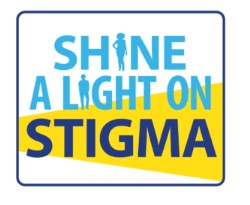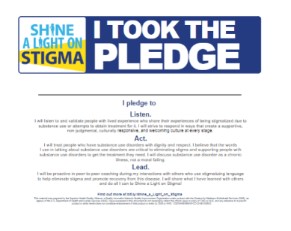Health care professionals have made great strides to improve treatment for individuals with substance use disorder (SUD). These include developing screening tools and implementing workflows to identify patients who need treatment. Other strategies include increasing the availability of treatment, adding recovery coaches and creating peer support groups to help guide patients to this care. Despite these improvements, only 1 in 10 people with SUD receives treatment.
 The Effects of Stigma on Access to SUD Treatment
The Effects of Stigma on Access to SUD Treatment
One of the primary barriers to increasing the number of people with SUD who receive treatment is the stigma surrounding the disease. Many providers report feeling poorly equipped to address SUD and may think this patient population can be “difficult” and uncooperative in treatment. This leads to their hesitancy to provide care. Patients with SUD, too, face their own internal stigma. Feelings of shame and judgment result in doubts that they can or will receive the treatment they need.
Addressing the Stigma of SUD by Using Person-Centered Language
Superior Health Quality Alliance (Superior Health), a Centers for Medicare & Medicaid Services (CMS) Quality Innovation Network-Quality Improvement Organization (QIN-QIO), has joined the many national organizations that recognize progress in improving treatment for people with SUD cannot be made until cultural norms concerning stigma are addressed. A central strategy for addressing this stigma is to increase awareness of the words and language we use when talking to or about people with SUD.
 Through its Shine a Light on Stigma campaign, Superior Health is encouraging individuals and organizations to sign a pledge demonstrating their commitment to using non-stigmatizing, person-centered language in interactions with people with substance use disorder. The pledge also urges those who sign to be open to listening to and learning about individuals who need SUD treatment. Examples of person-centered language include:
Through its Shine a Light on Stigma campaign, Superior Health is encouraging individuals and organizations to sign a pledge demonstrating their commitment to using non-stigmatizing, person-centered language in interactions with people with substance use disorder. The pledge also urges those who sign to be open to listening to and learning about individuals who need SUD treatment. Examples of person-centered language include:
- Instead of addict, using a person with substance use disorder
- Instead of drug abuser, using patient
- Instead of habit, using substance use disorder or drug addiction
The campaign webpage includes resources to learn more about stigma and a promotional media toolkit for participants to share the campaign and their commitment.
Local Outreach Leads to Early Positive Results
Superior Health launched the campaign's first phase on June 15, 2022, with staff and enrolled providers. These include state-based substance use disorder recovery groups, hospitals, clinics, and professional associations actively fighting against the opioid crisis. Outreach strategies included mentioning the campaign at Partnership for Community Health meetings and sending individual emails to external partners. The QIN-QIO also has begun promoting the campaign in monthly and bi-weekly e-blast updates to enrolled program participants and through its Twitter account, @Health_Superior, using the hashtag #ShineaLightonStigma. To date, all Superior Health staff have signed the pledge and seven organizations and 15 individuals outside of the QIN-QIO have signed.
In September, Superior Health will launch the second phase of the campaign. This will include engaging both fellow QIN-QIOs and all enrolled program participants. The goal is to spread the campaign across the country to show that changing how we speak to people with SUD and approach individuals who need SUD treatment can improve health outcomes.
This material was prepared by The Bizzell Group (Bizzell), the Data Validation and Administrative (DVA) contractor, under contract with the Centers for Medicare & Medicaid Services (CMS), an agency of the U.S. Department of Health and Human Services (HHS). Views expressed in this material do not necessarily reflect the official views or policy of CMS or HHS, and any reference to a specific product or entity herein does not constitute endorsement of that product or entity by CMS or HHS. 12SOW/Bizzell/DVA-1120-07/18/2023

